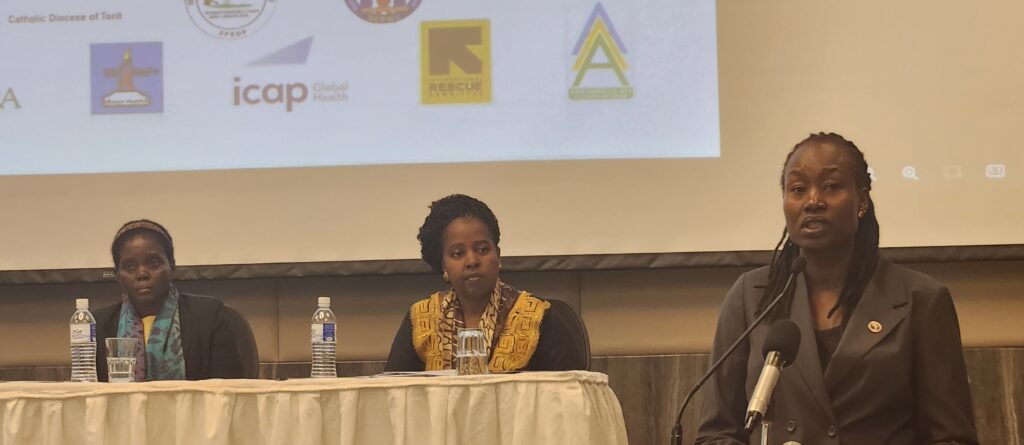South Sudan and health humanitarian partners held a celebration to mark two decades of partnership and support by the Global Fund.
The Global Fund has been supporting treatments and prevention of HIV, malaria, and tuberculosis in South Sudan to the tune of about US$800,000 million since 2004.
Speaking during the celebration in Juba on Thursday evening, Health Minister Yolanda Awel Deng appreciated the Global Fund support to the government.
She said the support had enabled the construction and the equipping of health facilities, strengthened laboratories, supplied commodities and offered community surveillance and waste management, as well as oxygen production.
Through the fruitful partnership, those affected by HIV/Aids, malaria and TB have greatly benefitted, lessening the burden on the neighboring countries, she said.
“We have the neighboring countries now seeking treatment from South Sudan. It is something we have to be proud of. We are supporting DRC, Chad and Sudan, so it means that what has been invested is working,” Deng said.
“Amidst a complex work environment prone to layers of challenges, both my staff in the health sector and the implementing partners have delivered transformative services. Going forward, the Global Fund needs to invest more in building national capacities to ensure continuity and investment,” she said.
The Undersecretary in the Ministry of Health, Dr Harriet Pasquale Akello, lauded the contribution of the Global Fund in South Sudan.
UNDP Acting Residence Coordinator Sheila Ngatia said the Global Fund had since 2004-increased action and investments to save lives combat HIV/Aids, tuberculosis and malaria, which all appeared unbeatable 20 years ago and have claimed many lives.
“Over the past 20 years, a total of 12 grants funded by the Global Fund have been implemented in South Sudan covering HIV/Aids, Tuberculosis, malaria, and Resilient and Sustainable Health Systems (RSSH) components. Cumulatively, the grants totaled US$799 million, out of which US$671 million had been disbursed by September 2024,” she said.
UNICEF Health Senior Program Manager Andrew Estano said the partnership had, over two decades, become a testament to their collective commitment to improving health outcomes, building resilience and making a tangible difference in lives across the country.
The Executive Director for Network of Aids Service Organization in South Sudan, Peter Garang Ngor, said there were critical blocks that continued to face the country, including stigma and discrimination against the HIV/Aids victims.
“We cannot live in the 21st Century in which someone misses a job due to HIV/Aids status,” he said.




